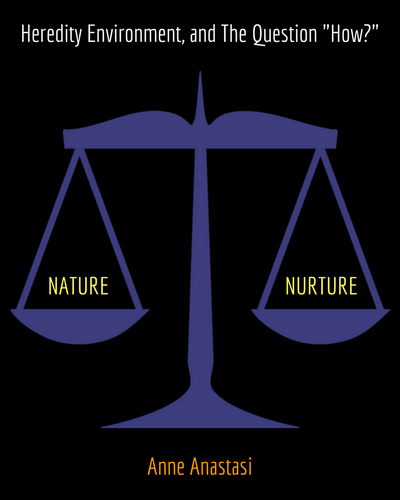Racial Traits In Relation To Heredity – Anthropology Notes – For W.B.C.S. Examination.
বংশগতির সাথে সম্পর্কিত বর্ণগত বৈশিষ্ট্য – নৃতত্ত্ব নোট – WBCS পরীক্ষা।
Heated controversies over the use, (mis)appropriation, harmful effects, and rejection of race continue to make regular headlines. The continued use of race concepts in genetic research was described recently as “problematic at best and harmful at worst” (Yudell, Roberts, DeSalle, & Tishkoff, 2016, p. 564). Two years ago Dobbs (2014) denounced Nicholas Wade’s “A Troublesome Inheritance” (2014)—a book in which Wade, using a combination of circular logic, speculation, and “just‐so” stories, made unsubstantiated claims about the genetic basis for three major human races—and described it as “a deeply flawed, deceptive and dangerous book.” One hundred forty‐three leading human geneticists admonished Wade for his “misappropriation” of their research and rejected the idea that their work substantiated any of Wade’s racial claims (Coop et al., 2014).Continue Reading Racial Traits In Relation To Heredity – Anthropology Notes – For W.B.C.S. Examination.
While use of race is problematic, some researchers have indicated when it comes to eliminating racial injustices, “‘there are much bigger fish to fry’ than scrubbing race as a biological category” (Begley, 2016). Moreover, simple substitution of terms (e.g., race, population, and ancestry) is not a panacea, because each scientific question requires selection of an appropriate lens through which it can be answered.
Anthropologists, regardless of prevailing perspective on race, are (or have the capacity to be) highly influential on common conceptualizations of race (Smedley, 1993). Nearly 40 years ago, Lieberman and Reynolds (1978, p. 33) conducted an empirical investigation to determine the prevailing views on race among anthropologists at the time, having noted belief of the existence of human races was “widespread among scientists” generally. Lieberman and Reynolds (1978) examined whether prevailing beliefs on race among physical anthropologists were distinguishable from scientists generally, studied the sociocultural influences on physical anthropologists’ perspectives on race, and reported results from a survey of physical anthropologists’ levels of agreement with statements about race drawn from the literature. The nine statements used by Lieberman and Reynolds in their study to classify “lumpers” (i.e., those who do not believe races exist), “splitters” (i.e., those who believe races exist), and “intermediate” lumpers or splitters . Regardless of whether lumpers or splitters and notwithstanding varying perspectives on the existence of race, Lieberman and Reynolds noted most physical anthropologists were “equalitarian in orientation and liberal in outlook” (Lieberman & Reynolds, 1978, p. 338). Their results showed (1) anthropologists from privileged sociocultural backgrounds (labeled “overdogs”) tended to share the then dominant view on the existence of races and, thus, tended to be splitters and (2) anthropologists from marginalized sociocultural backgrounds (labeled “underdogs”) tended to be lumpers, rejecting the existence of human races.
A subsequent survey in 1985 showed belief in race divided physical anthropologists roughly in half (Lieberman & Reynolds, 1996). While scholars have periodically revisited this topic and noted the “growing awareness of the meaninglessness of racial taxonomy” (Cartmill, 1998, p. 659), as recently as 2003 there was not yet sufficient evidence to conclude a “dramatic recent rejection” of race within the subfield (Cartmill & Brown, 2003, p. 115). By 2009, however, general consensus among leading biological anthropologists on a number of areas was reported, including that “[r]ace is not an accurate or productive way to describe human biological variation” (Edgar & Hunley, 2009, p. 2). Indeed, more nuanced views about race among anthropologists and areas of study have emerged (e.g., Goodman, 2013). In 2012, we decided it appropriate to re‐examine views of anthropologists across all subfields to better understand current prevailing views on race, ancestry, and genetics.1 Here, we present that study to inform broader efforts to move scientists “beyond race” and to encourage—as we articulated elsewhere2—anthropology’s embrace of a holistic, anti‐racist approach.
Our own publications are available at our webstore (click here).
For Guidance of WBCS (Exe.) Etc. Preliminary , Main Exam and Interview, Study Mat, Mock Test, Guided by WBCS Gr A Officers , Online and Classroom, Call 9674493673, or mail us at – mailus@wbcsmadeeasy.in
Visit our you tube channel WBCSMadeEasy™ You tube Channel
Please subscribe here to get all future updates on this post/page/category/website



 Toll Free 1800 572 9282
Toll Free 1800 572 9282  mailus@wbcsmadeeasy.in
mailus@wbcsmadeeasy.in


















































































































